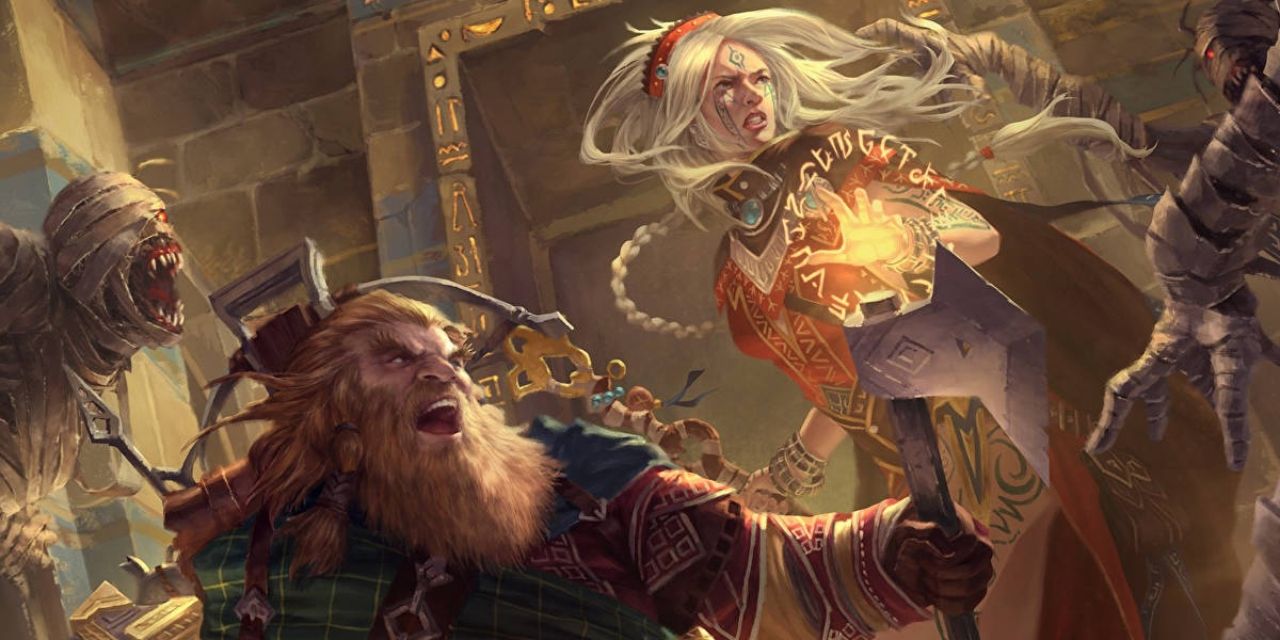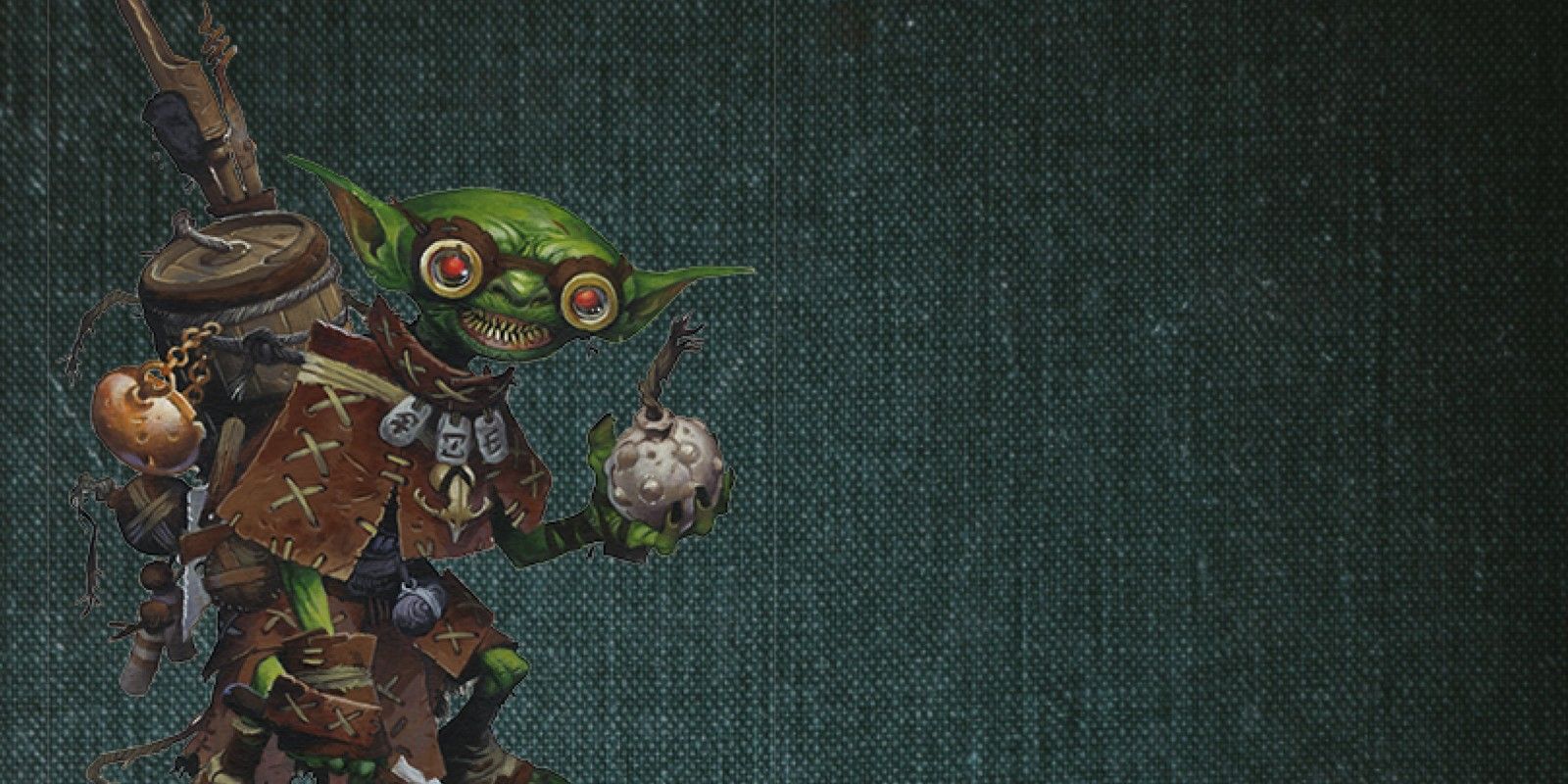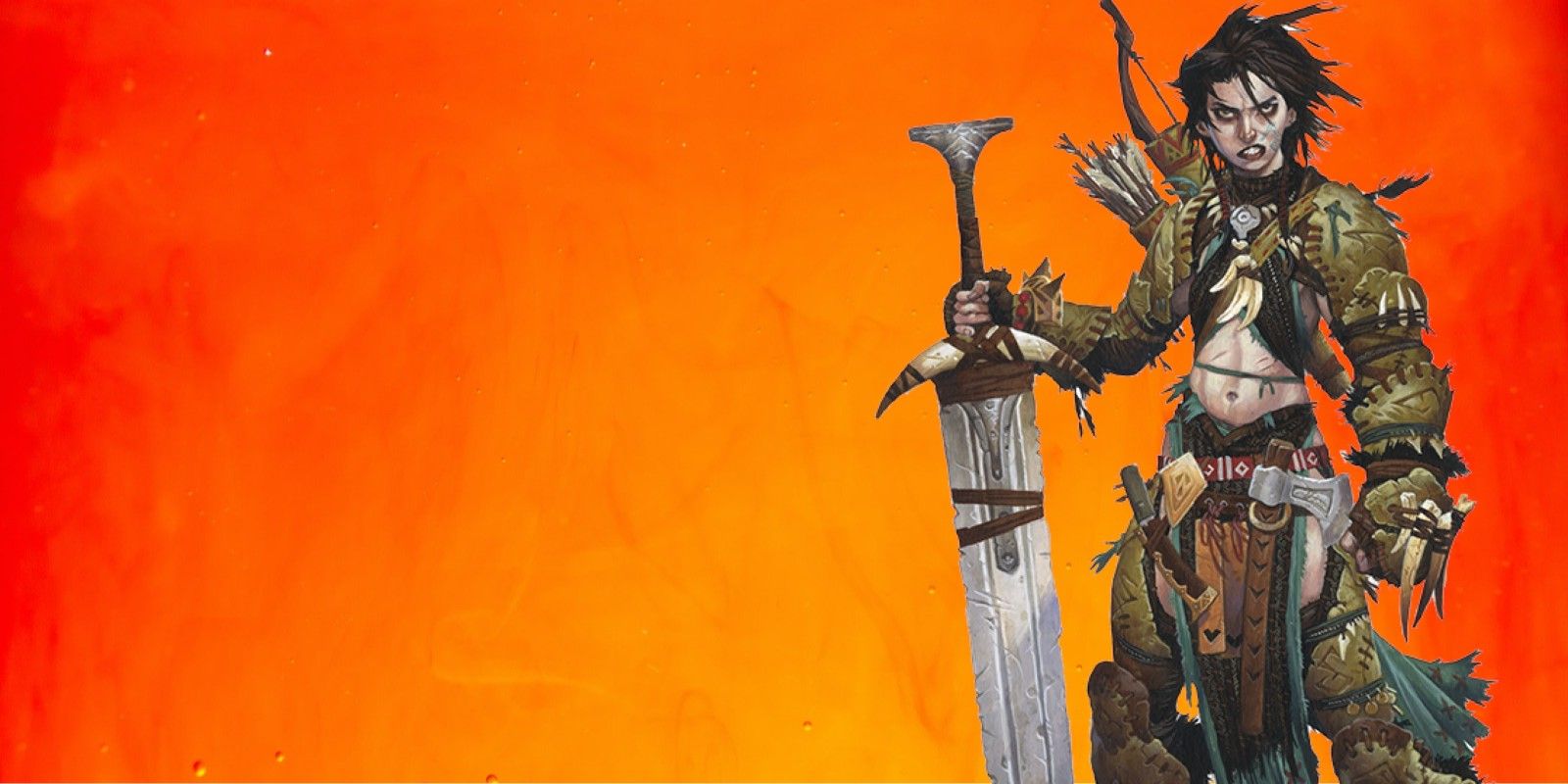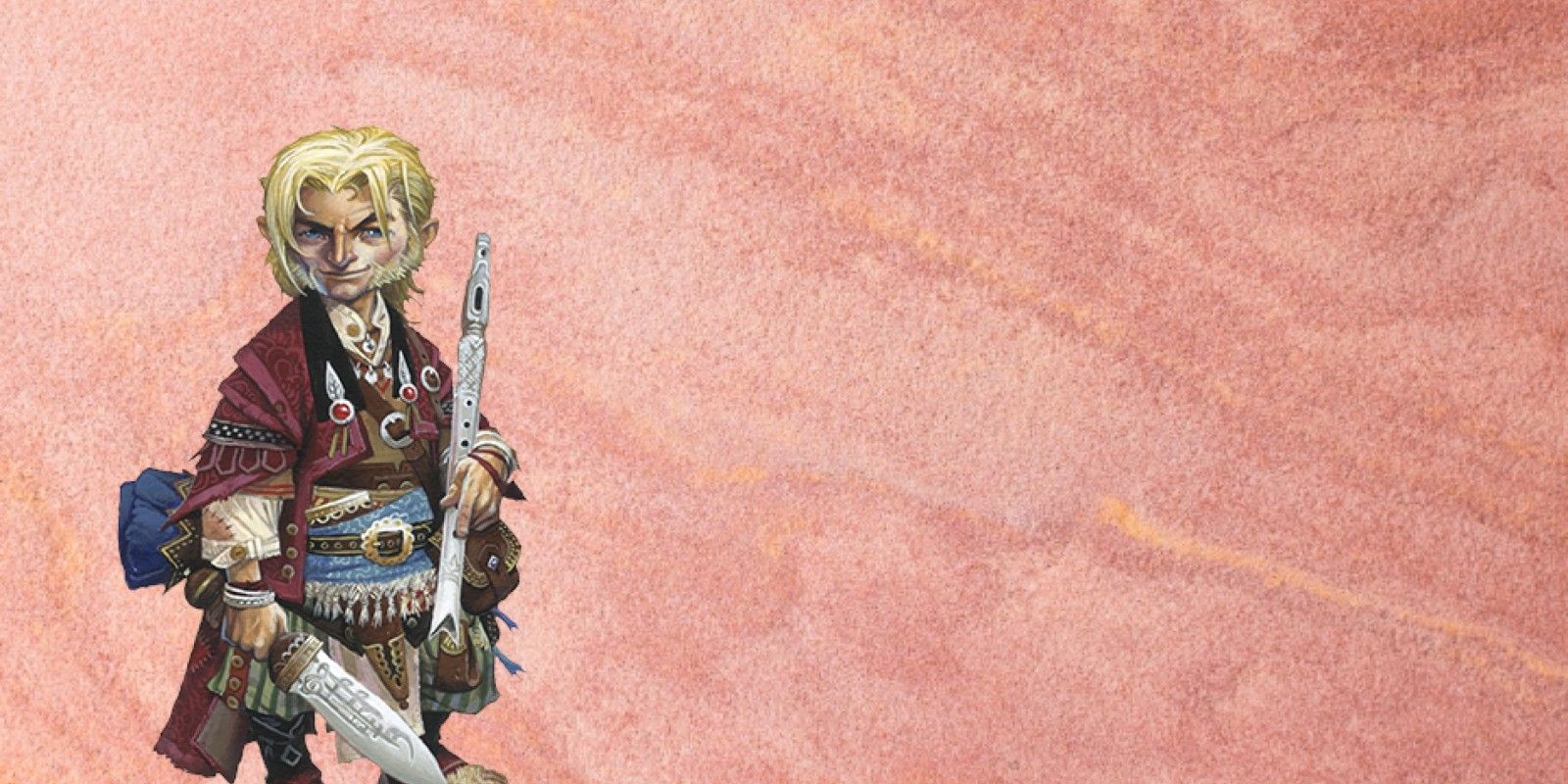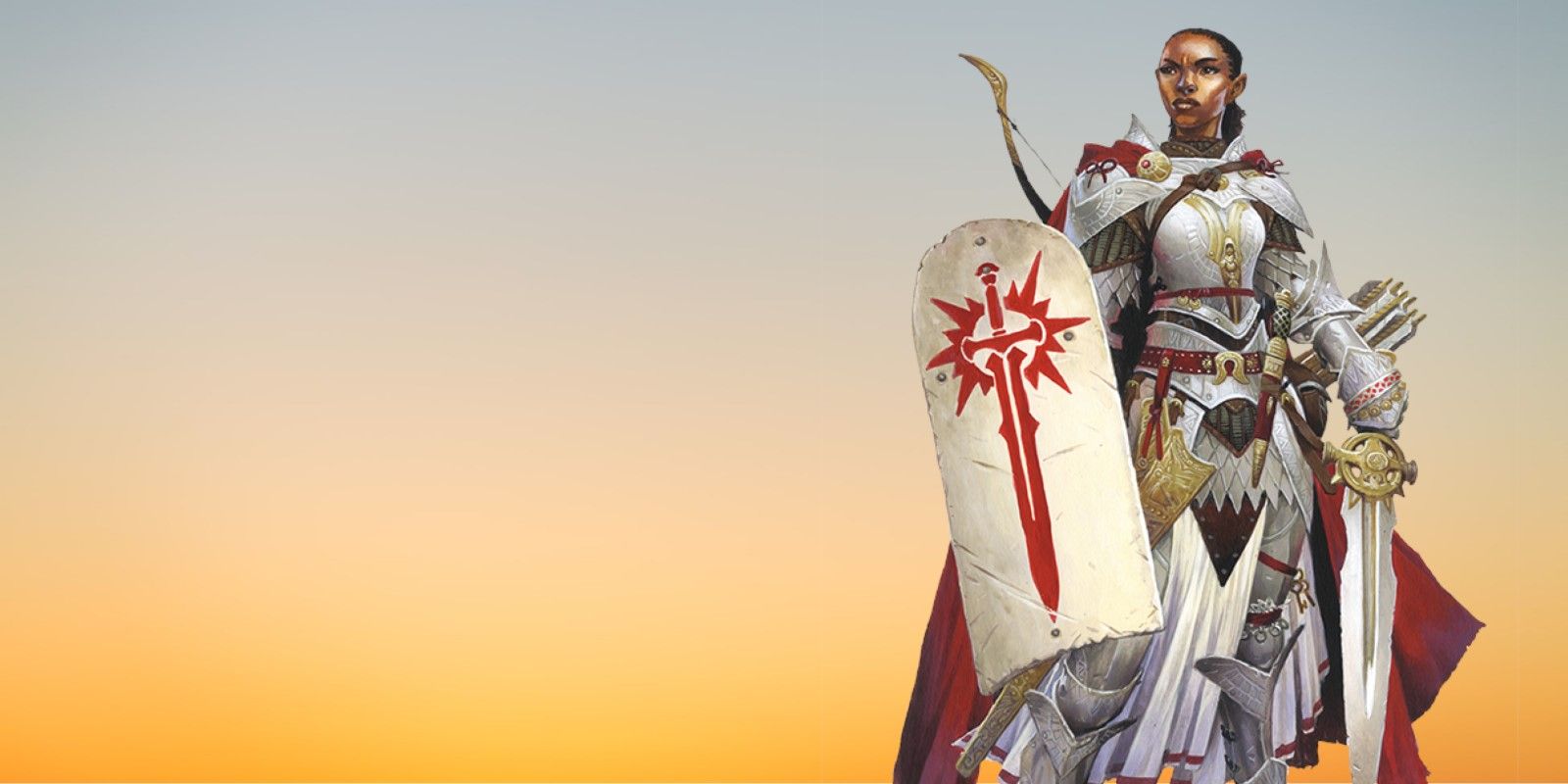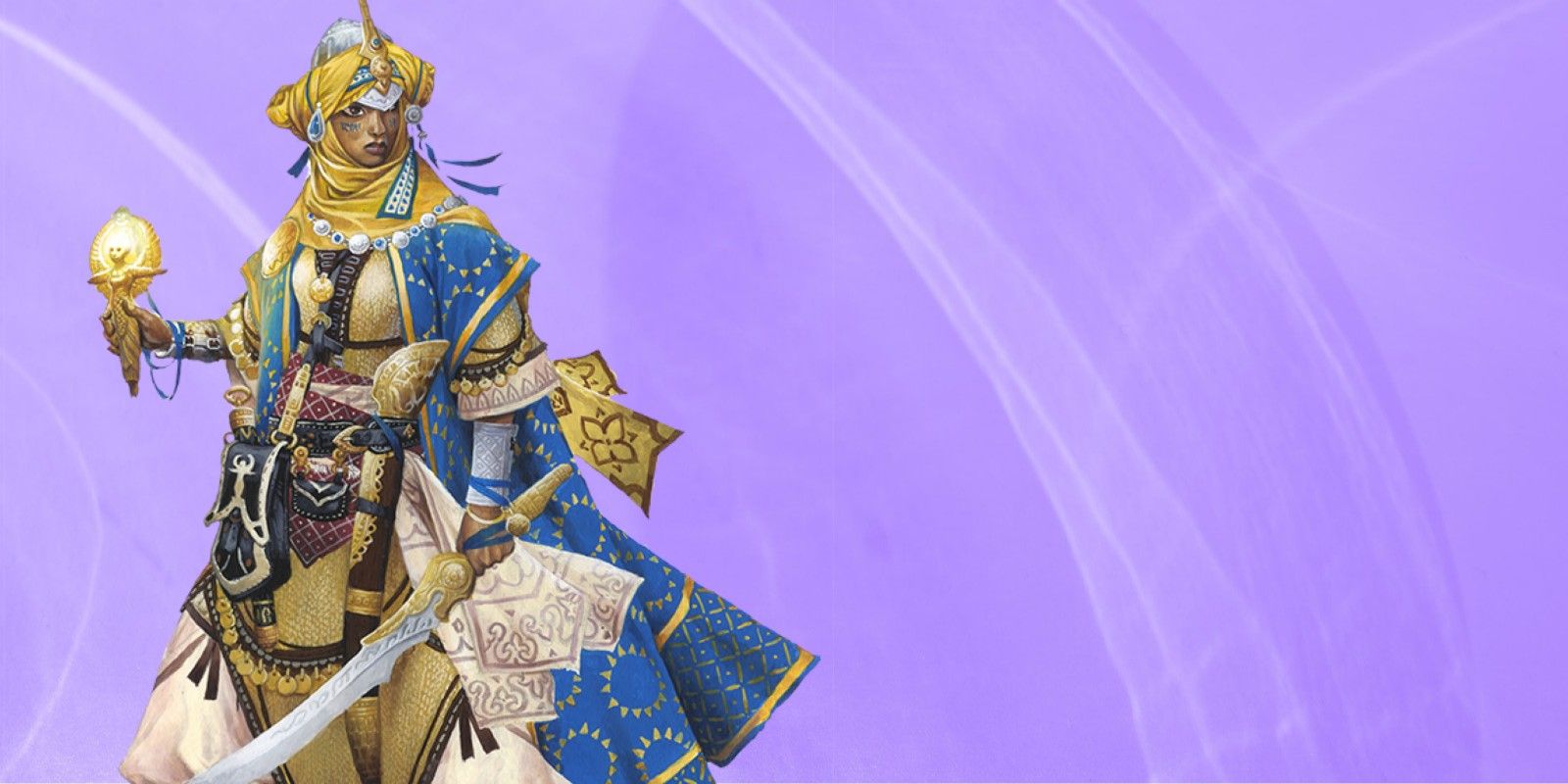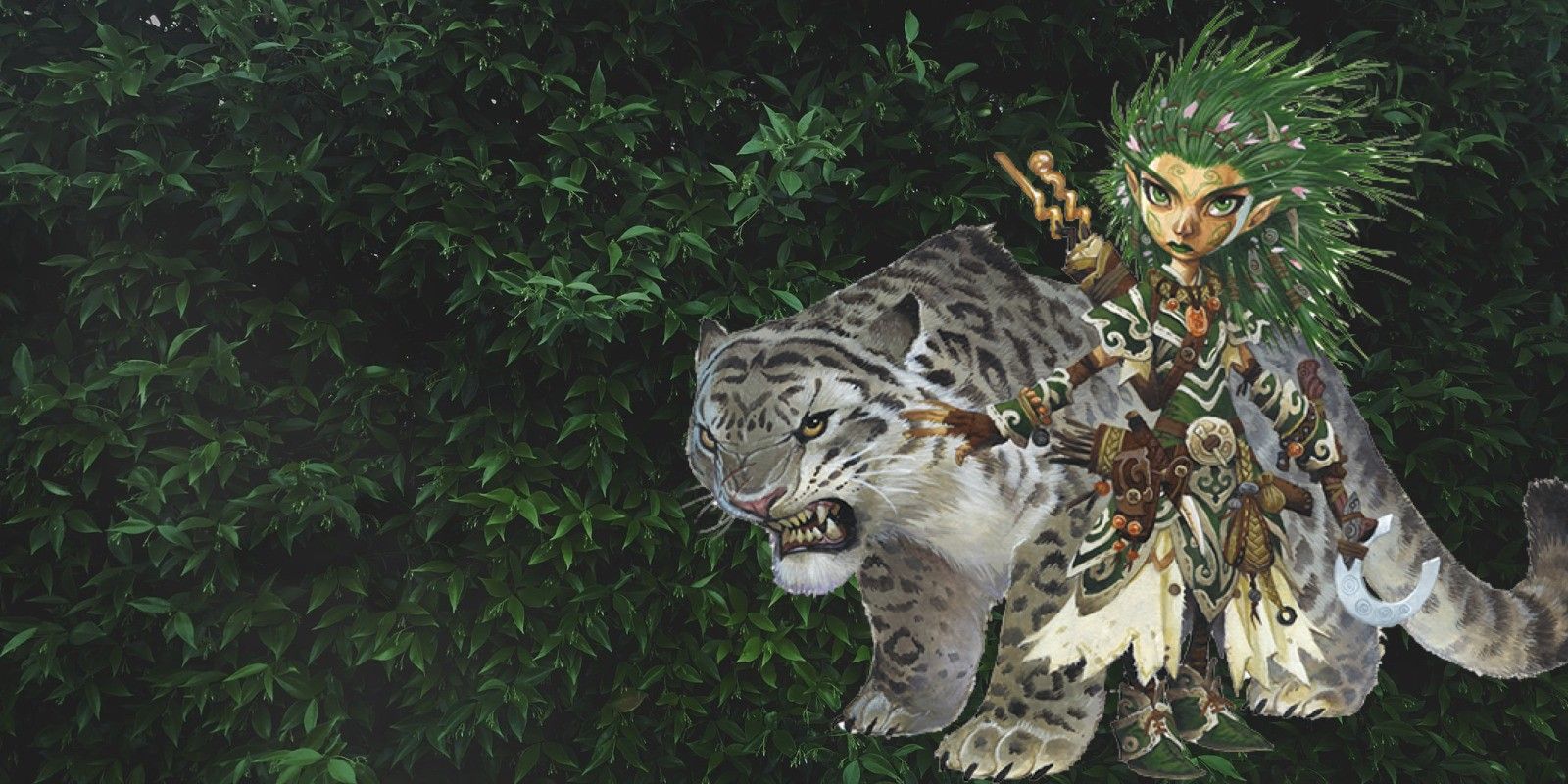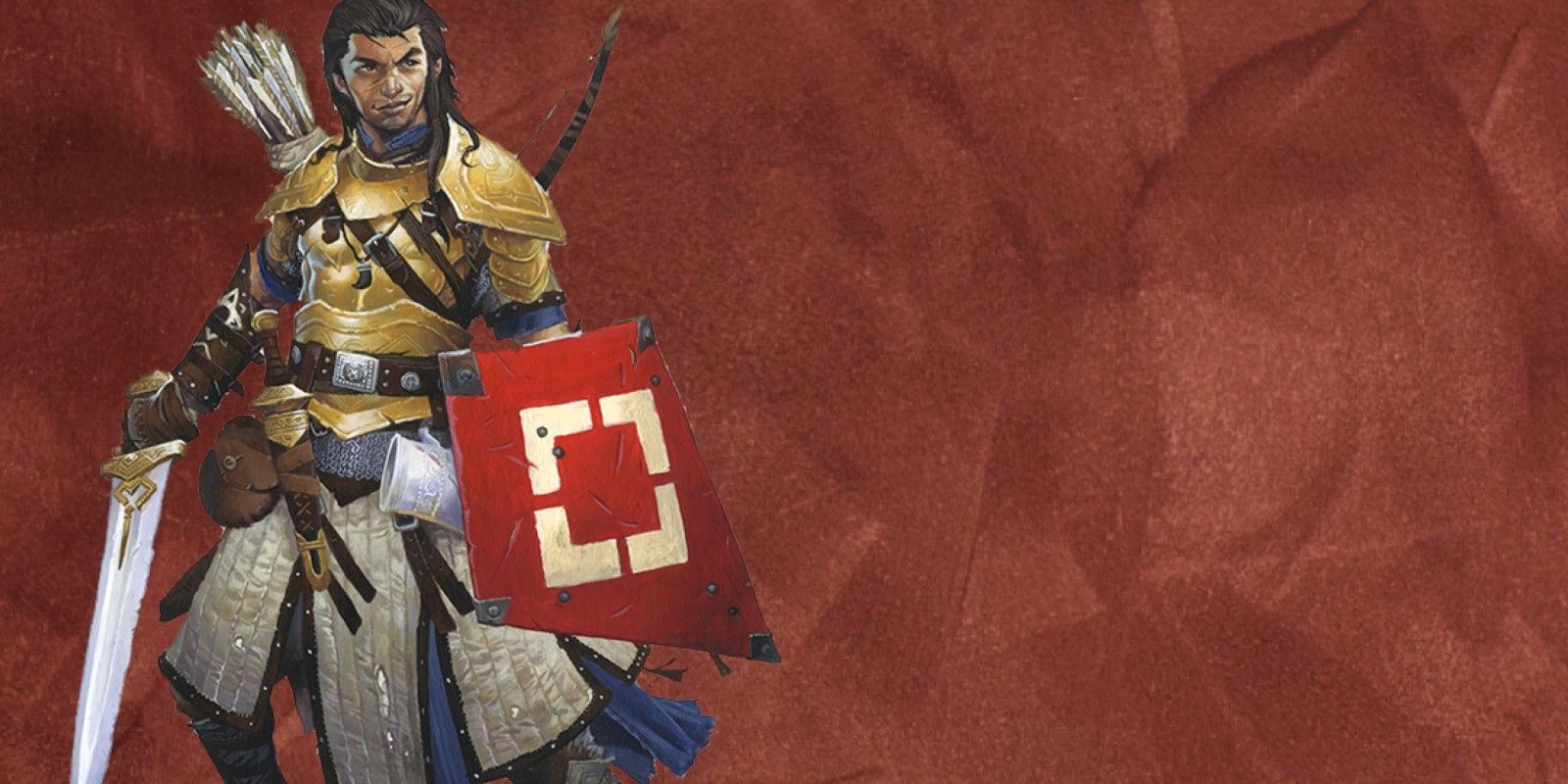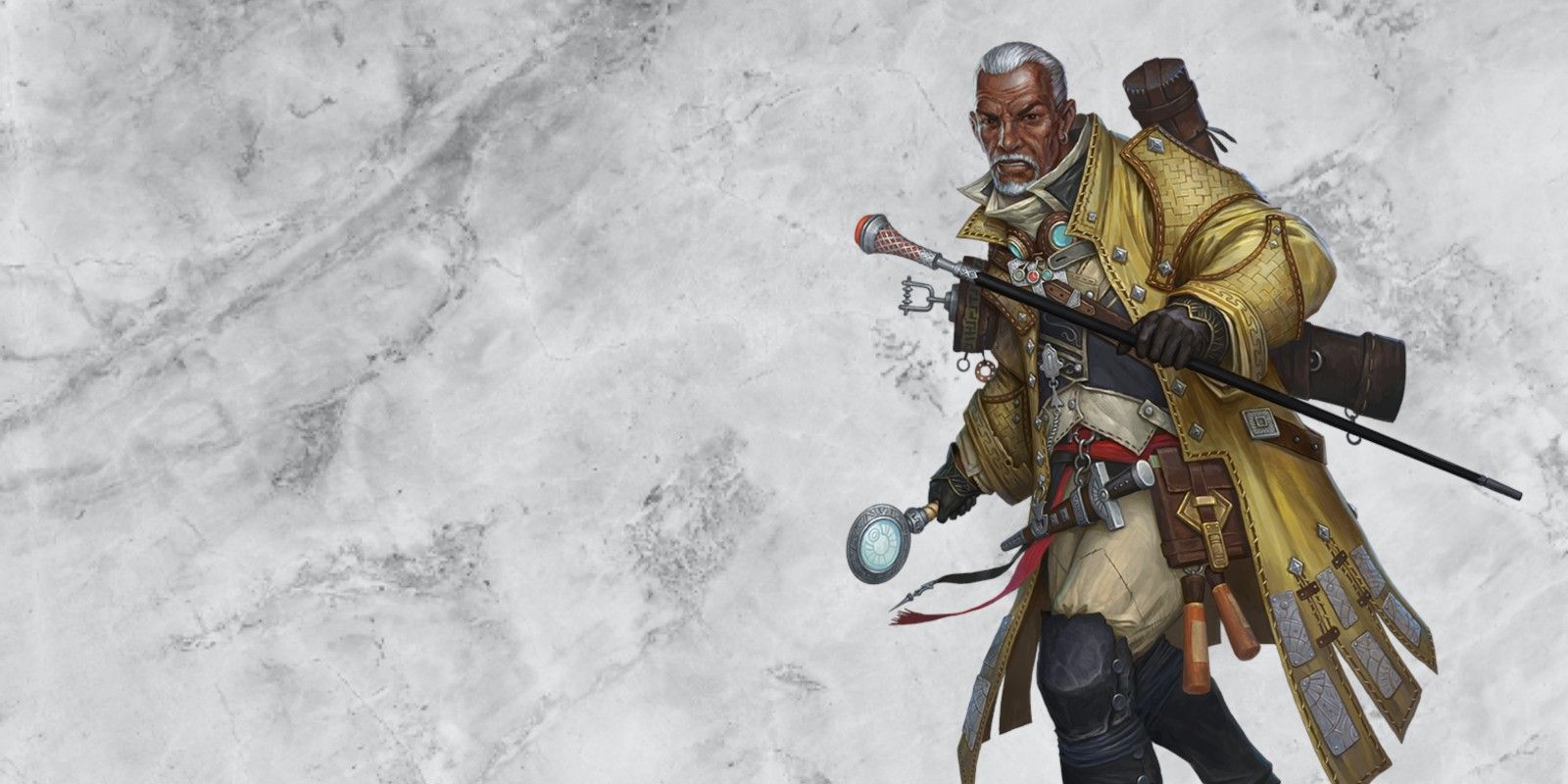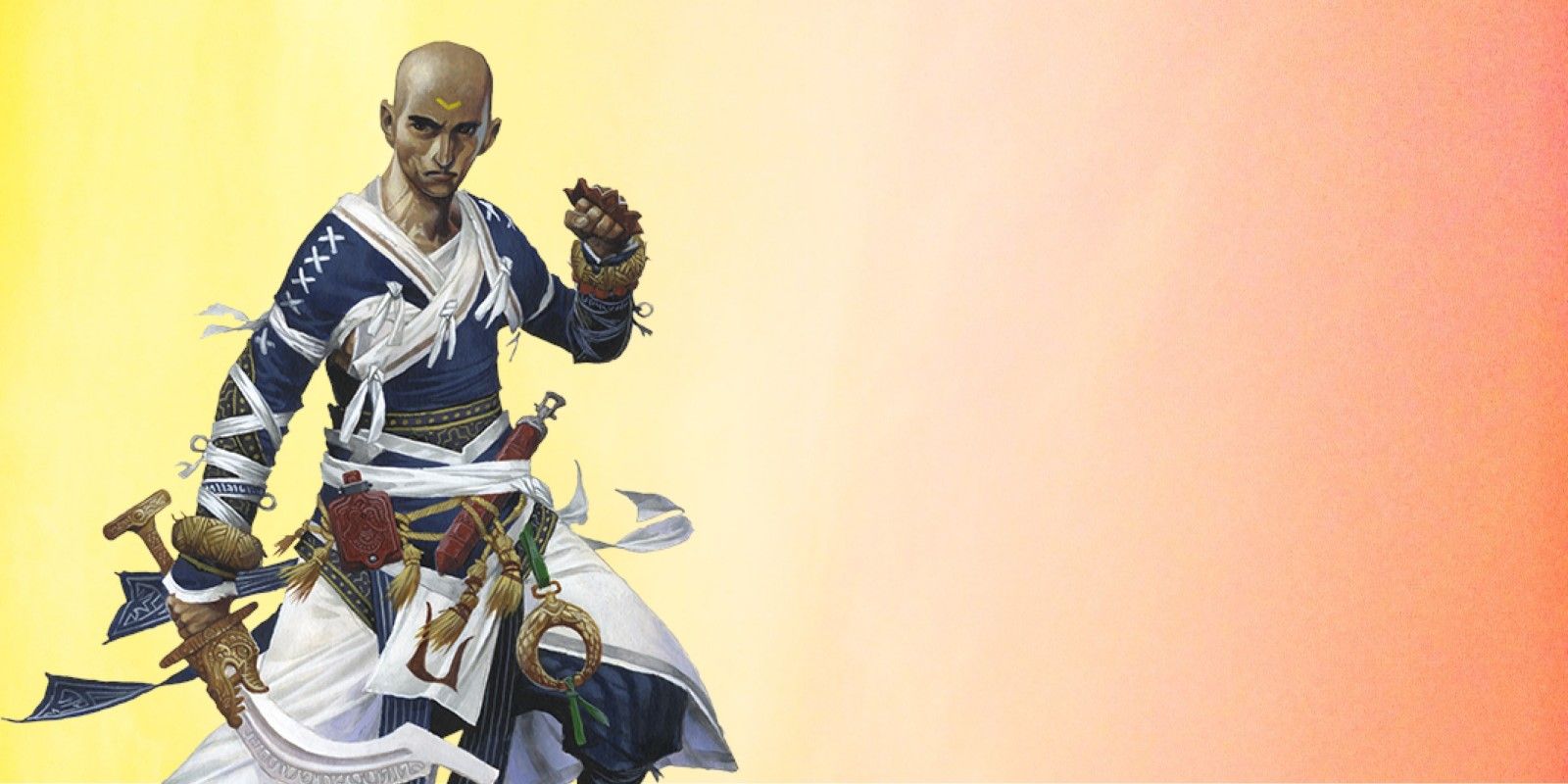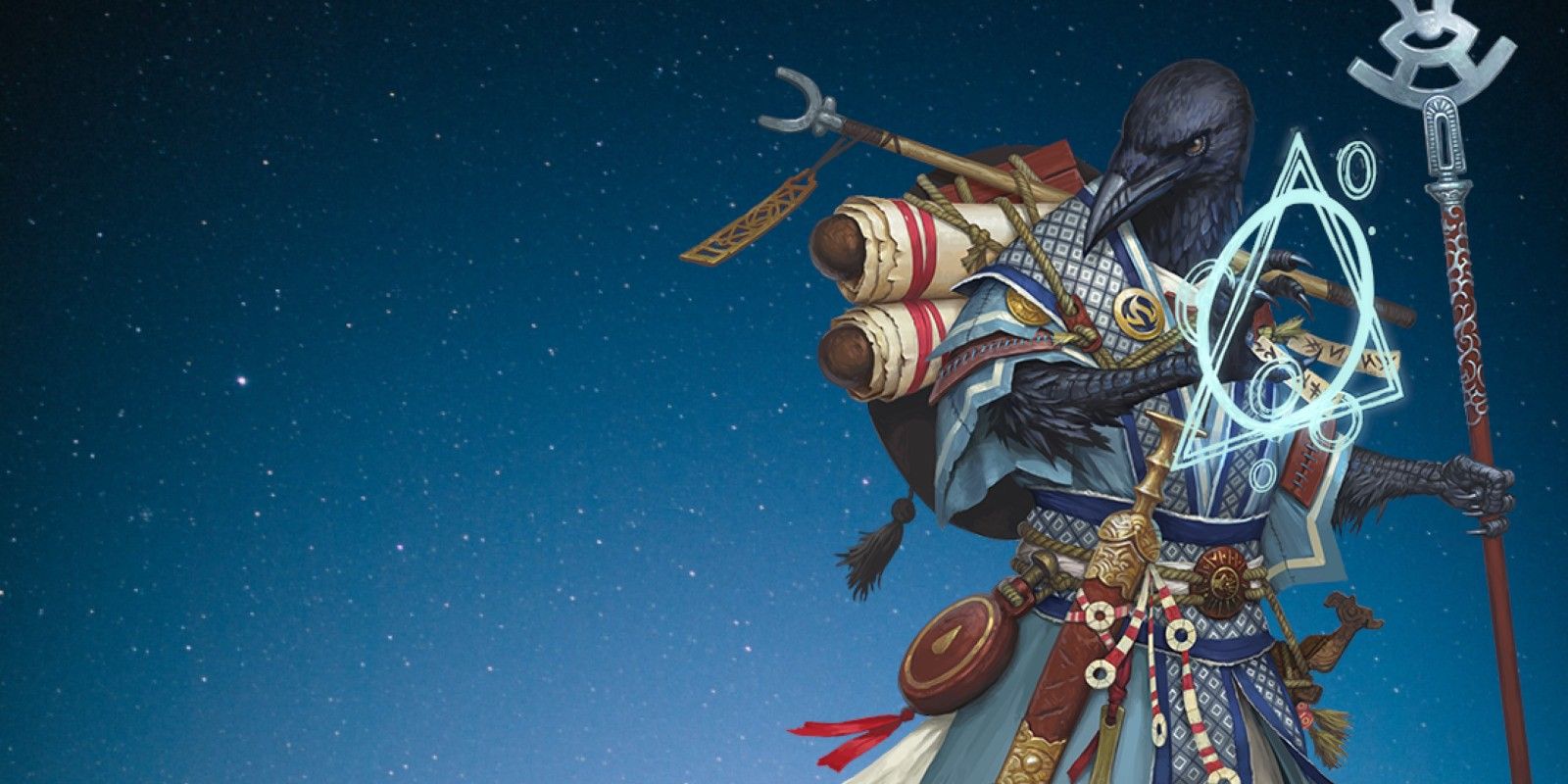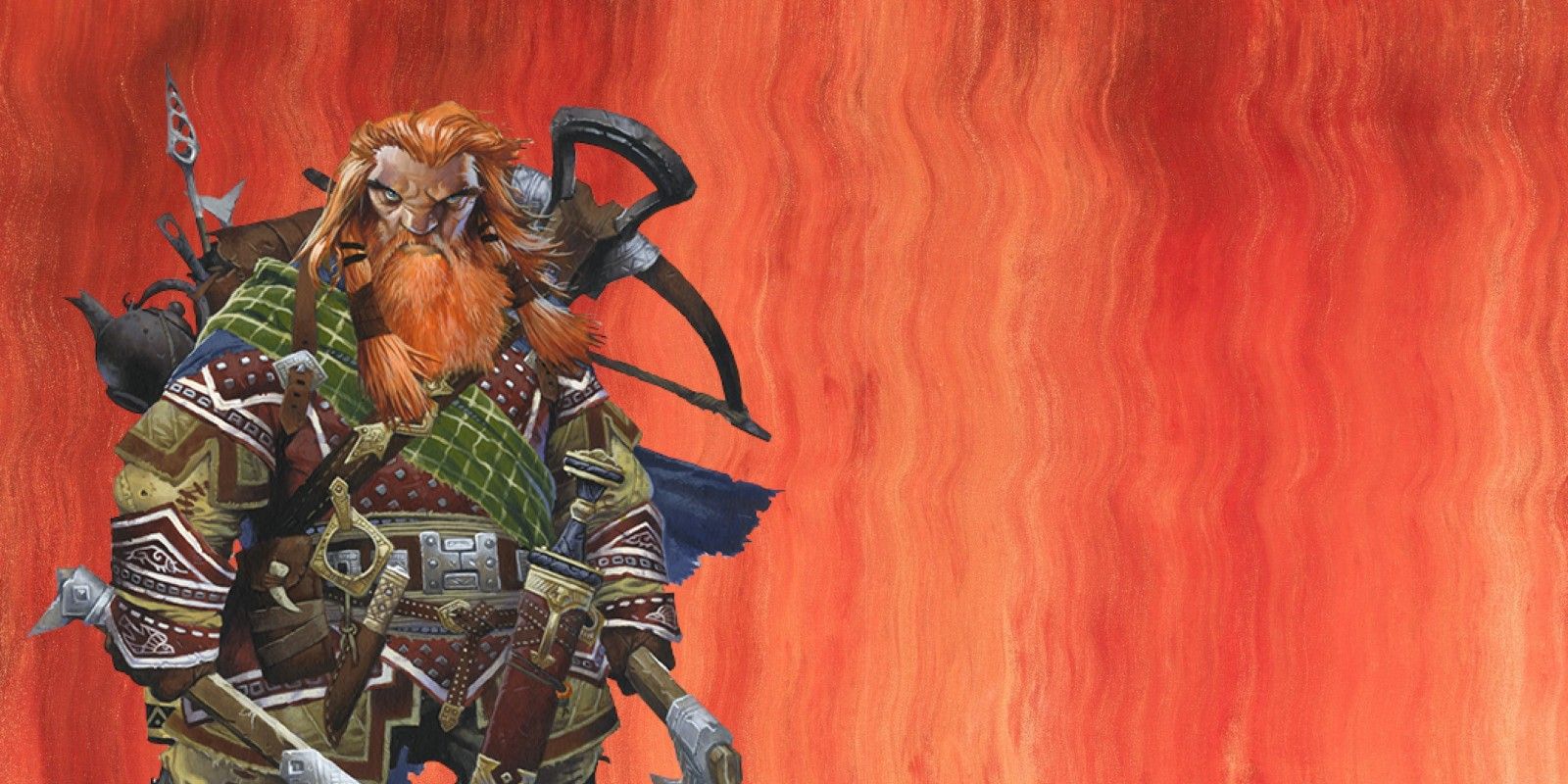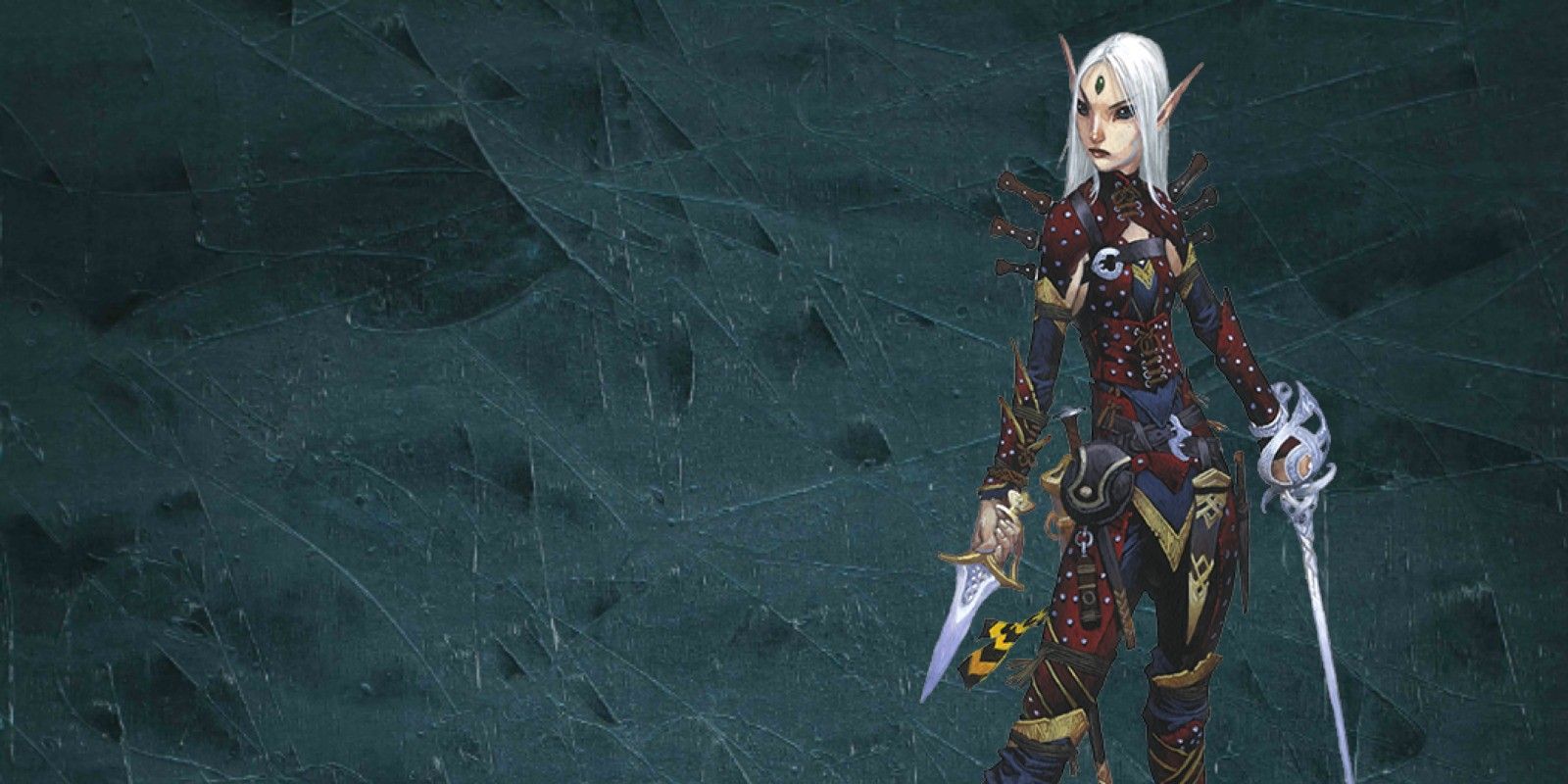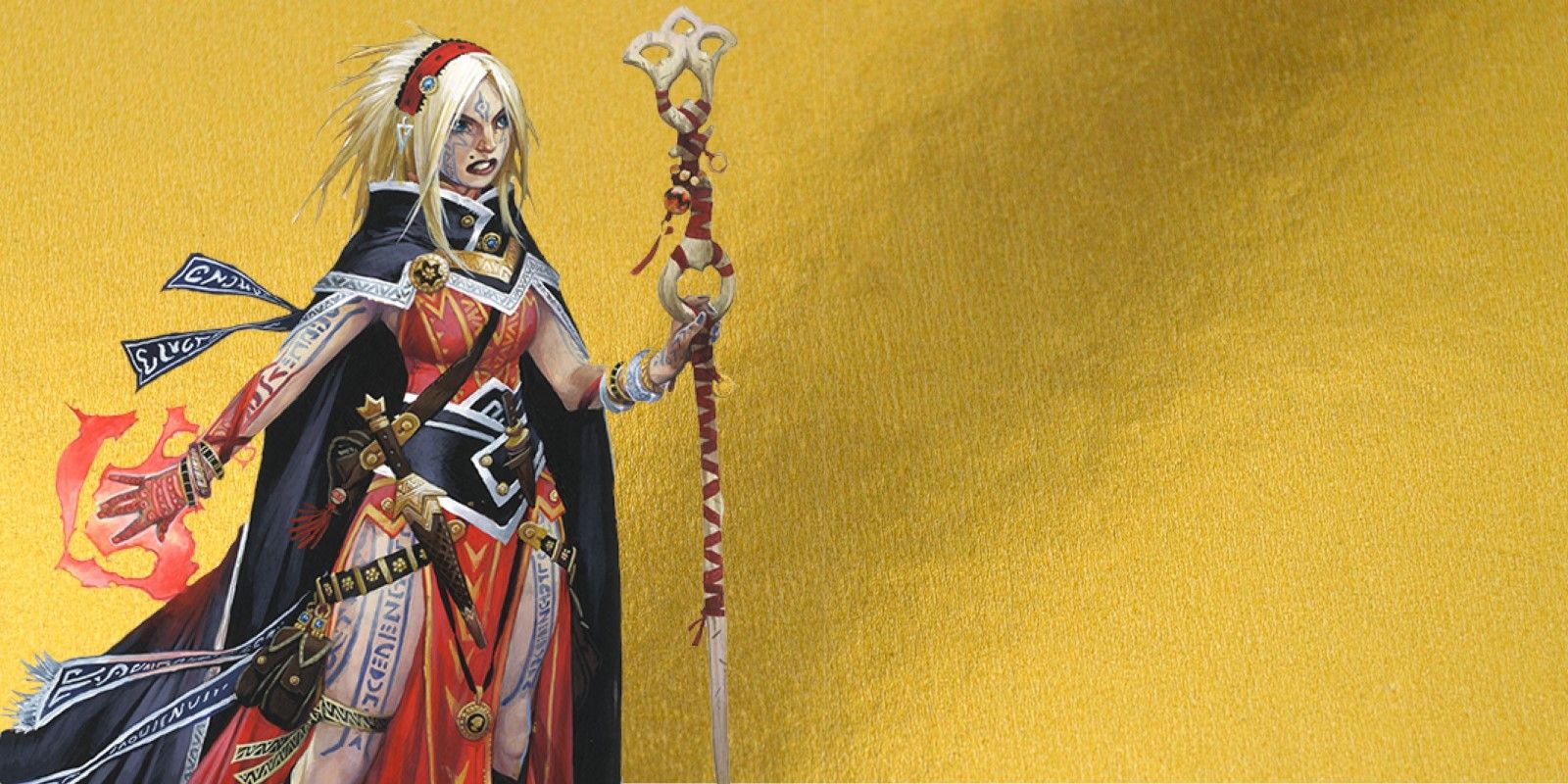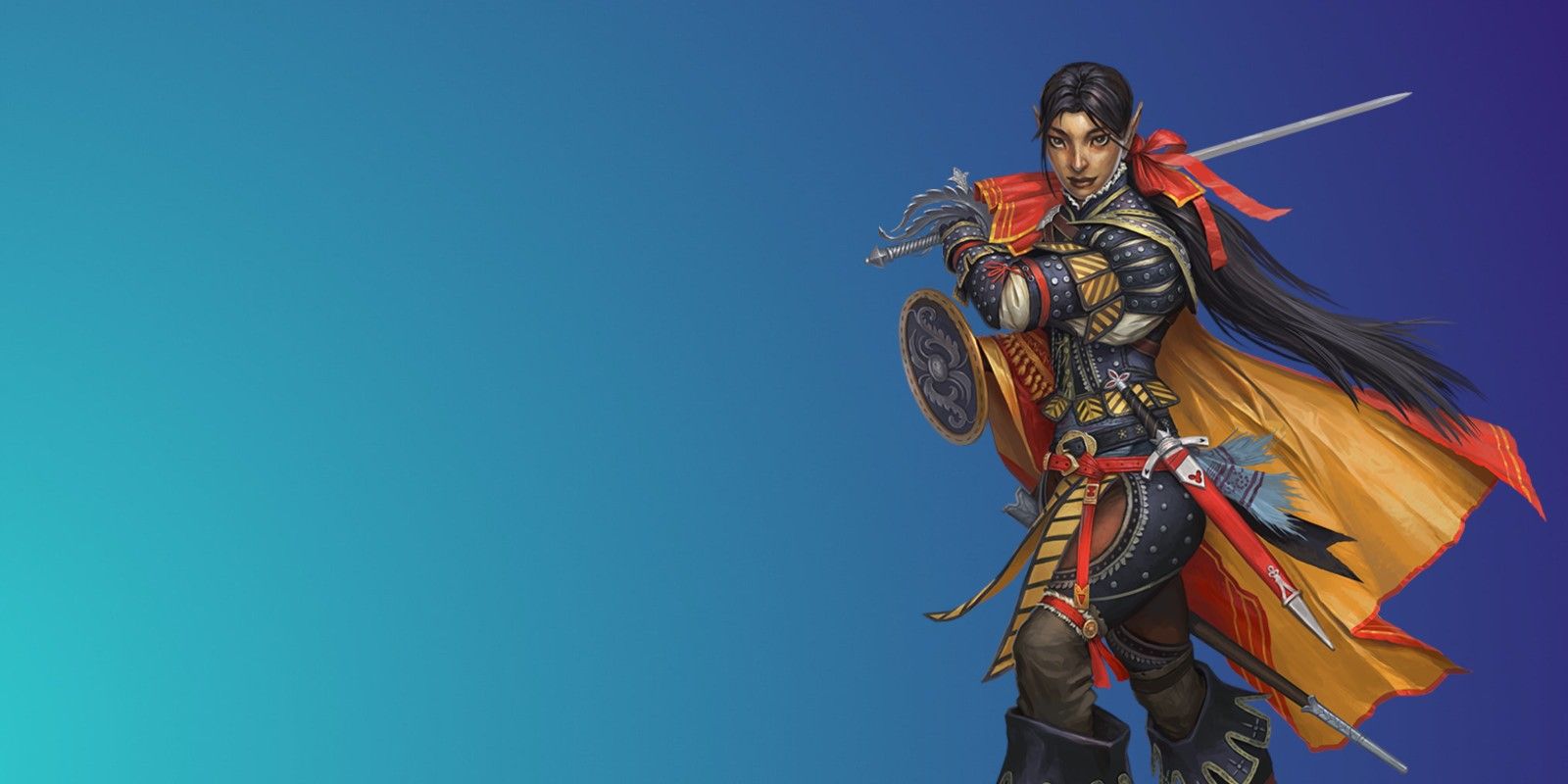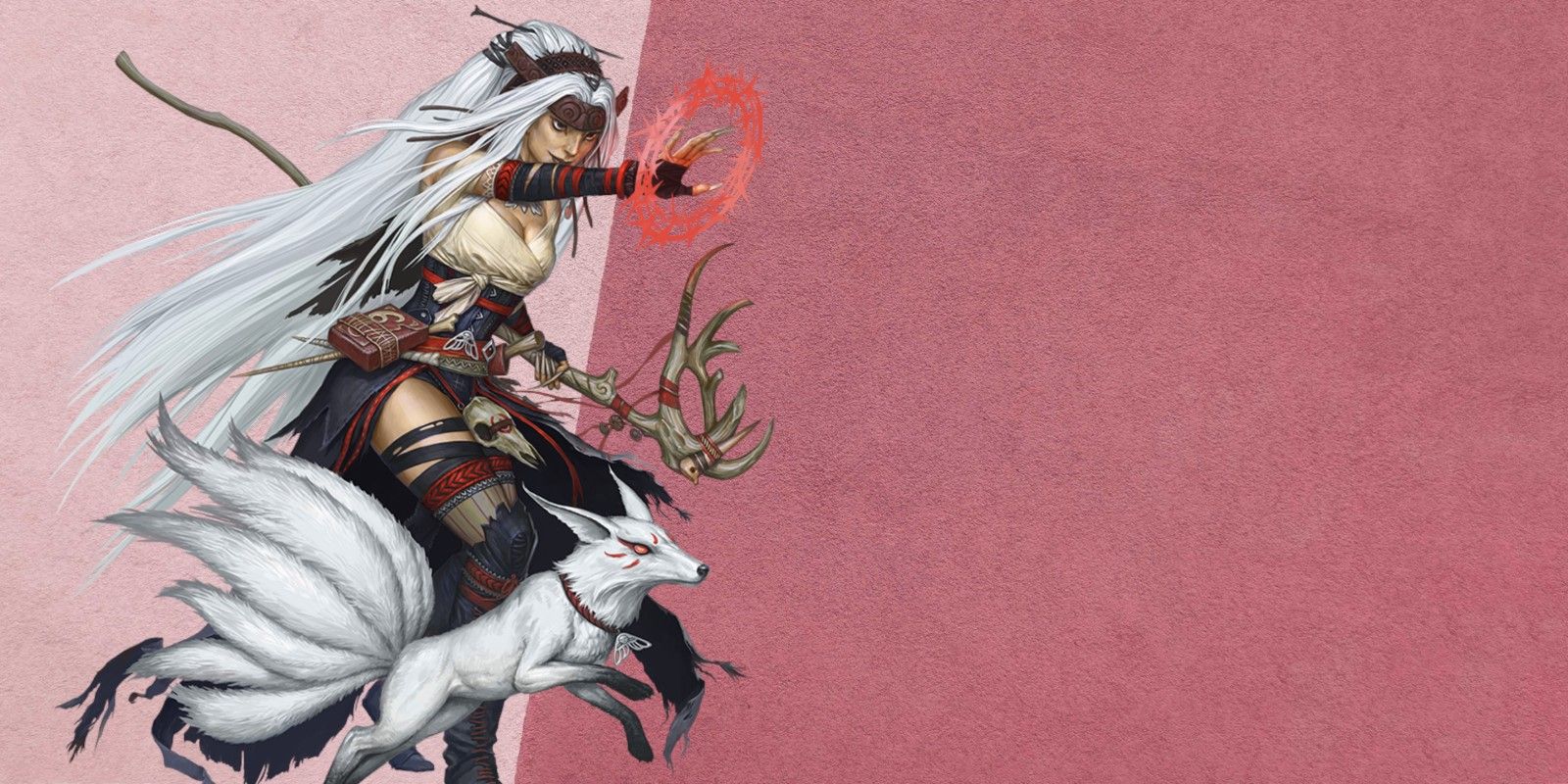The second edition of Pathfinder effectively re-imagines classes that have been a staple in tabletop RPGs for years. Every character in Pathfinder has a single class that lasts from level one to 20, and all customization comes from the variety of backgrounds and feats they can choose. This makes each class feel unique, providing a solid canvas for character development.
Pathfinder's classes are brimming with possibilities, allowing players to craft the characters they desire while still fitting that class' structure and carving out their role in the party and the world at large. The Pathfinder Core Rulebook introduced 12 Classes, and the Advanced Player Guide added four more. With Paizo Publishing announcing playtest material for the upcoming sourcebook, War of Immortals, they've also added two brand-new classes gamers can playtest before the release: the animist and the examplar.
Updated on September 27, 2023, by Ajay Aravind: Pathfinder 2nd Edition maintains the D&D-esque feel and mechanics of its predecessor, but is currently incompatible with the original Pathfinder. That said, Pathfinder 2e has found itself a legion of fans, with critics also stating that the second game and its rulebook are far superior. With 16 Pathfinder 2e classes available to play, we've updated this feature with some more relevant information.
The Alchemist
The alchemist is one of the more flexible Pathfinder 2e classes, allowing players to be as offensive or supportive as they like. This will appeal to those who like the idea of crafting lots of items that can be saved for tricky situations or used as solutions to puzzles, as well as those who enjoy finding creative solutions to problems. While any player can take feats that allow them to brew potions and create explosives, no one does it better than an alchemist.
With their expert knowledge of alchemy, they can create reagents from items they find around them for free. They can even specialize in creating bombs, healing elixirs, or mutagenic substances that will temporarily buff whoever consumes them. This leads to a great possibility for customization when creating an alchemist character. It's also a great alternative to clerics where healing is concerned.
The Barbarian
One of the toughest Pathfinder 2e classes, barbarians are often built as brutish, front-line fighters, making them a perfect choice for players who love to get into the thick of battle. They can summon their rage as an ability to get buffs and special powers, which is a great way to add deeper characterization to a PC. The way barbarians channel their rage varies, as each of them has an Instinct that ranges from animal to draconic and provides specific abilities. Of course, there's always the classic option of being fueled by raw fury. This class is a perfect choice for players who want to test the limits of Pathfinder's combat while still picking a martial class.
The Bard
Players who love the role-playing aspect of tabletop gaming naturally gravitate towards bards, making it one of the best-suited Pathfinder 2e classes. They prioritize Charisma and can sway social situations to their advantage with spells, performances, and natural charm. They also have a knack for earning money during downtime periods. That is not to say that bards aren't useful in battle.
They're occult spellcasters who can perform composition spells. These are special limited abilities that often provide fantastic support, but some are potent offensive skills that can quickly turn the tide of battle. Bards are great for players who enjoy role-playing and playing a support role in battle. Their feats are largely geared towards making them more reliable and versatile spellcasters, so even players who build characters with combat in mind should be satisfied.
The Champion
Champions are Pathfinder's answer to paladins but without the restrictive alignment requirements. They are described as emissaries for deities, and the only requirement is that their alignment be compatible with that of their deity. In combat, champions lean into a tanky role, either by protecting their allies with their handy reaction abilities or by buffing their shield with the Divine Ally class feature earned at third level.
Alternatively, champions can pick a Divine Steed and gain a mount, which is another attractive option for personalizing a character. Pathfinder does a great job at making champions feel unique. With the huge range of deities present in the lore, there are plenty of options to fit with any character idea. It's one of the better Pathfinder 2e classes for players who like to begin with a strong character concept rooted in mechanics and work from there.
The Cleric
While Champions can draw magic power from their deities, clerics are the religious spellcasters of Pathfinder. They vary wildly depending on which deity they worship, and this choice affects some of the spells they can cast, whether their Divine Font is harming or healing, and what weapons they favor. In addition to a deity, players must choose between two doctrines, one that favors spellcasting and one that encourages physical combat.
Clerics are a quintessential support Pathfinder 2e class, but they are not restricted to that playstyle — they can adapt their spell list to match their situations. Overall, they are perfect for players who wish to play a devout character.
The Druid
One of the more exotic Pathfinder 2e classes, druids harness the power of nature to fight battles and defend their allies. They cast spells from the primal school of magic and are an extremely versatile class, perfect for players who like to keep their options open. Druids align themselves with a particular druidic order, each of which has blessings and rules to follow. One of these grants the druid an animal companion, which is great for players who love having that sort of gameplay option available to them.
Alternatively, druids of the wild order can take the Wild Shape feat and transform themselves into various animals, which is a fun ability to have both for combat and roleplaying. Druids even get their own language that only other druids can understand, which makes this class great for any adventure where druidic encounters are likely.
The Fighter
Fighters are masters of combat who thrive on the battlefield. While fighters are generally a straightforward class, Pathfinder keeps them interesting. While they obviously focus on their martial development, there are other things that fighters can do well. For example, they are likely to be great at intimidating others in social situations and on the battlefield, and they will probably do well when it comes to manual labor.
Where Ffghters absolutely excel, however, is in their ability to become the best combatants they can be. There are swathes of feats available that allow players to craft the exact type of warrior they want, with options rewarding all types of weapons and even dual-wielding. Fighters are perfect for learning the basics of Pathfinder's combat system while performing reliably within it.
The Investigator
Investigators may seem like an odd choice for any adventure where mysteries aren't the focus, but they can do well in almost any situation. One of the smarter Pathfinder 2e classes, they excel at solving puzzles and understanding any foes they encounter. Investigators shine when used correctly both on the battlefield and during important social encounters. In combat, investigators can scrutinize foes to find their weak spots and aid allies in securing a quick victory. Outside of battle, they are experts at drawing out the truth from NPCs.
The main draw of the investigator class is their ability to Pursue a Lead. This action opens an investigation and grants a bonus to Perception checks when examining an object or location of interest. This can be supplemented by an investigator's methodology, which is a specialization that the investigator chooses, such as forensic medicine or alchemical sciences. These provide more ways for investigators to role-play and help the party solve mysteries.
The Monk
Monks in Pathfinder use hand-to-hand combat to defeat their enemies with alacrity and style. This Pathfinder 2e class is based on treating the body as a temple and excelling in combat with just their fists. It offers a multitude of feats that allow the Monk to use various combat stances to bolster their offense and ki spells that use energy from within the body to effect spell-like abilities.
As they gain experience, monks even learn how to treat their unarmed attacks like magical attacks and metal attacks, making them effective against a diverse range of enemies. Players may want to try this class if they want to experiment with a different type of martial combat that doesn't rely on weapons and armor. Monks are a graceful, stylish alternative to Fighters and are more durable than Rogues.
The Oracle
One of the Pathfinder 2e classes with an interesting background is the oracle. These magicians get their magical power from understanding the grand mysteries of the universe, concepts, and ideals that gain the attention of multiple deities. Every oracle must choose a mystery upon character creation which will dictate not only the spells they can cast, but also a curse that they suffer — which can be leveraged as a double-edged sword in emergencies.
For example, an Oracle of Flames is granted the ability to produce flames at will, but if they overuse their most powerful spells, they will be cursed by visions of smoke that hinder their sight. Oracles make for unique characters whose risk-reward gameplay might appeal greatly to players who value that sort of character personalization.
The Ranger
Rangers are experts when it comes to traversing the wilderness and dealing with both wild animals and monsters. In combat, they are great at singling out a target and taking them down with stacking bonuses. They have a lot of feats that favor ranged weaponry, but they are by no means limited to them. As they level up, rangers get better at using their Hunt Prey action, gaining bonuses when attacking their target.
They back this up with a tendency to be great at physical combat in general, so they're handy allies to have in a pinch. Although one of the Pathfinder 2e classes with no natural spellcasting ability, rangers do have easy access to an animal companion from first level without restrictions. This is a great choice both thematically and mechanically, as a ranger's animal companion will gain the benefits of their Hunt Prey action too. This should appeal to players who like the idea of adventuring with a useful pet.
The Rogue
Pathfinder's Rogues are skilled warriors with a range of character customization options that make them extremely versatile. A big draw is the huge number of skills that rogues can train in, making them very useful in a number of situations. They can also perform sneak attacks against enemies when caught off guard, which can be a huge source of damage. Rogues come in all forms, and this can be expressed through their racket.
This is a choice between Ruffian, Scoundrel, and Thief, all of which help round out the individual character and even give them different choices for their main stat. As one of the Pathfinder 2e classes that thrive both on and off the battlefield, the Rogue is a fantastic choice for beginners and veterans alike. There are very few situations in which a rogue will find themselves feeling useless.
The Sorcerer
While Wizards gain their magic ability through study and dedication, Sorcerers are simply born with it in their blood. Each Pathfinder sorcerer chooses the exact source of their power during character creation, whether it be demonic, draconic, or otherwise. These choices can play a role in the character's backstory or simply be a means to an end, as each grants their own skill specialties and spell lists.
This Pathfinder 2e class will appeal to players who desire a spellcaster who doesn't need to prepare a carefully curated spell list every single day, and those who want to take advantage of a sorcerer's generally high charisma in social situations. Those who are invested in the idea of a magic bloodline will love the sorcerer feat list, as they get many feats that develop this aspect of their character. It's a powerful class ripe with interesting quest hooks and backstory fuel.
The Swashbuckler
One of the most stylish Pathfinder 2e classes is the Swashbuckler. These warriors use flair and flourishes to fell their foes in battle. The quintessential swashbuckler is a rapier-wielding rogue who can spout witty quips as they duel their enemies. This makes them attractive to players who want to be the star of the party and have all eyes on them. A awashbuckler's combat revolves around panache and cool finishers.
They can specialize in dexterous or charismatic battle styles and capitalize on their successful rolls to gain momentum in battle, becoming quicker, more damaging, and able to perform better gymnastic stunts. As they gain feats, swashbucklers unlock more options with which to turn any combat situation to their advantage, and they can even pull off stunning ripostes. This class is perfect for players who wish to evoke the likes of Errol Flynn or Guybrush Threepwood.
The Witch
Similar to Oracles, witches command power that is granted by an element of the unknown. For these spellcasters, mysterious patrons grant them their abilities through a conduit that takes the form of a spectral familiar. This familiar is a big draw for players who like the idea of taking a pet along with them and having them be crucial to their playstyle.
As they develop, witches can choose to improve the abilities of their familiar or gain abilities that are intrinsic to the stereotypical depiction of witches. Cackling and owning a cauldron are feats that witches can take, which are fun to incorporate into role-playing. Those who enjoy this aspect of the game may be drawn to this class thanks to the mysterious nature of their patron, which provides fantastic hooks for story quests and character development.
The Wizard
Wizards are one of the best spellcaster classes in Pathfinder 2e, appealing to players who appreciate the sheer potential of magic. They are studious mages who can pull an answer to anything out of their spellbook, given enough time and preparation. Wizards can be universalists or choose to specialize in a specific school of magic, such as abjuration or necromancy.
Additionally, wizards must pick an Arcane Thesis that they have completed. This choice can grant a magical familiar, improve their metamagic abilities, or alter the ways in which their spells are prepared. These options are great for giving players the freedom to create their perfect wizard. Overall, wizards are versatile and powerful once they get a large repertoire of spells and feats under their belts. Until then, they are fragile but fun to use.

